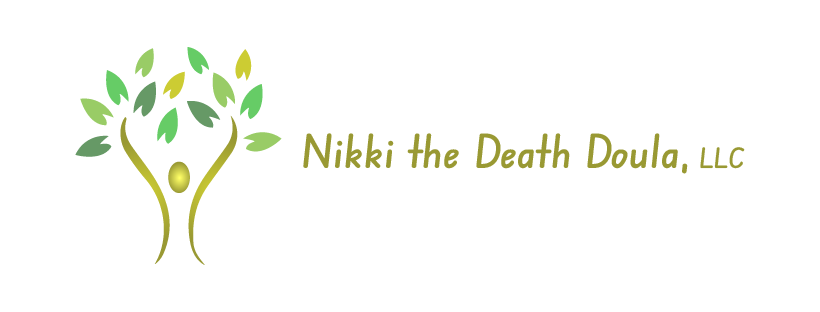The Importance of Legacy Work in End-of-Life Care
When we think about end-of-life care, we often focus on the medical aspects—pain management, hospice services, and making sure final wishes are honored. But there’s another crucial piece that often gets overlooked: legacy work. This isn’t just about estate planning or leaving behind financial assets; it’s about creating a sense of meaning and connection that outlives us.
Legacy work is limitless! There are so many ways we can help you to live on well past your days in your meatsuit here on this plane of existence. It’s really the process of reflecting on your life, sharing stories, preserving memories, and ensuring that what truly matters is passed down to loved ones. (Hint; it doesn’t have to be a piece of jewelry or photo album) Most importantly, it provides an opportunity to bring closure, strengthen relationships, and leave a lasting imprint on the world in a deeply personal way.
I have seen this first hand!!
Why Does Legacy Work Matter?
Helps Find Meaning in Life’s Journey As people near the end of life, they often begin reflecting on their experiences—their triumphs, regrets, and everything in between. Legacy work allows them to process these moments in a meaningful way, turning seemingly ordinary events into stories that carry wisdom and love. Whether it’s through storytelling, letter writing, or recording personal philosophies, this reflection can provide a sense of fulfillment and peace.
Offers Comfort to Loved Ones The grief process is complicated, and losing someone we love can leave an immense void. Legacy projects—such as letters, videos, or even recipe books—can provide comfort to those left behind. Knowing that their loved one took the time to share their thoughts, advice, or favorite memories can be incredibly healing. A recorded message from a grandmother or a handwritten note from a father can become cherished keepsakes, offering solace for years to come. (Also, working on these together while the loved one is still alive is a beautiful way to spend a day!)
Strengthens Connections and Heals Relationships End-of-life can bring about unresolved conflicts or unspoken words. Legacy work creates space for open, honest conversations. It gives people the chance to say, “I love you,” “I’m sorry,” or “Thank you” before it’s too late. These moments of vulnerability and truth can bring families closer together and help heal old wounds.
Provides a Sense of Control Facing mortality can feel overwhelming, but legacy work offers a way to take control of the narrative. Choosing what to pass down—whether it’s life lessons, traditions, or creative works—gives a sense of agency in a time when so much may feel uncertain. This proactive approach can ease anxiety and create a positive focus in the final chapter of life.
Leaves a Lasting Impact Legacy is not just about family—it’s about the world we leave behind. Some people engage in legacy work through philanthropy, mentoring, or creative contributions. Writing a memoir, creating art, or starting a charitable foundation are all ways to leave a footprint beyond one’s lifetime. Even small actions, like sharing wisdom with younger generations, can shape the future in meaningful ways.
Ways to Engage in Legacy Work
There’s no one way to do legacy work. It’s a deeply personal process, and the best methods are the ones that resonate most with the individual. Here are some common ways people choose to create their legacy:
Storytelling – Sharing memories through recorded conversations, written journals, or even video diaries can capture personal history in an authentic way.
Letters or Messages – Writing letters to children, grandchildren, or close friends can provide lasting words of encouragement, advice, and love.
Ethical Wills – Unlike legal wills, ethical wills pass down values, beliefs, and life lessons rather than material possessions.
Creative Expression – Some people turn to music, poetry, or visual art to express what words cannot.
Memory Projects – Scrapbooks, recipe collections, and photo albums serve as tangible pieces of legacy that families can treasure.
Acts of Kindness – Engaging in service work, mentoring others, or setting up charitable donations can make a lasting impact on a community.
Bonus: here are some great legacy projects I have seen myself or heard from other doulas.
Write an obituary together as a family before the death occurs. I’ve done this more than once and it’s led to some beautiful family interactions.
Host an annual fundraiser for the ailment that your loved one suffered with.
Create a box of letters, photos, recipes and other tokens
How Caregivers and Professionals Can Support Legacy Work
For caregivers, hospice workers, and death doulas, facilitating legacy work can be a powerful way to support someone in their final days. Encouraging storytelling, providing prompts for reflection, and assisting in capturing memories can make a significant difference. Something as simple as asking, “What’s a story you want your grandchildren to remember?” can spark a meaningful conversation. Or a good laugh about that time you almost burned down the garage on Thanksgiving trying to deep fry a turkey.
Additionally, people like us death doulas can help remove any barriers to legacy work, such as fear of technology, physical limitations, or uncertainty about where to begin. Providing tools, resources, and a compassionate ear can empower individuals to engage in this valuable process.
Final Thoughts
Legacy work is not just about what we leave behind—it’s about how we live in the present and what our life means to the great good. It offers an opportunity to celebrate a life well-lived, to say the things that need to be said, and to ensure that the essence of a person’s spirit continues to shine in the lives of others.
For those at the end of life, engaging in legacy work can be a source of great comfort and purpose. For those who support them, helping facilitate this process is one of the greatest gifts we can offer. Because in the end, what we leave behind isn’t just about possessions—it’s about love, wisdom, and the stories that live on.
